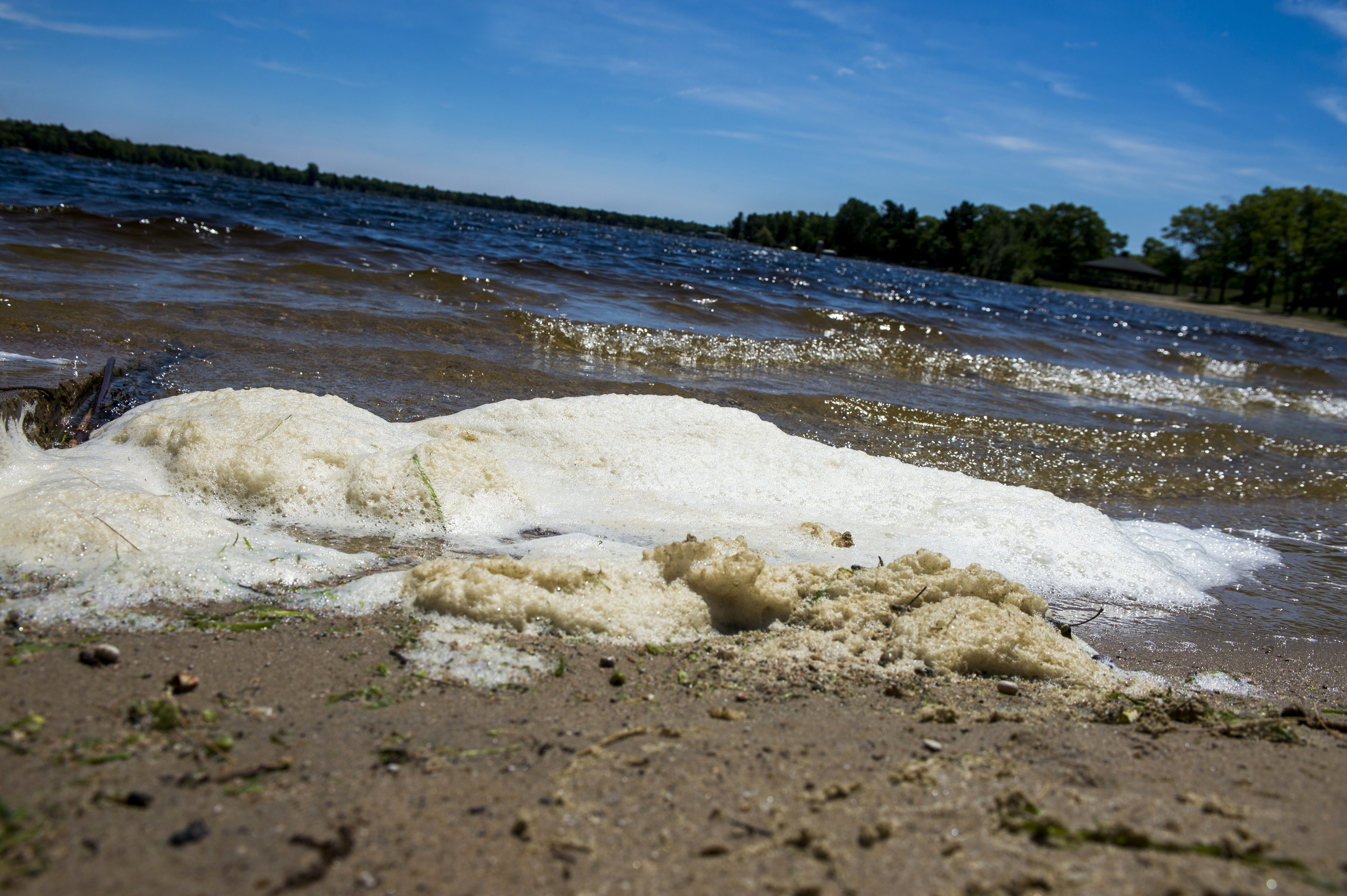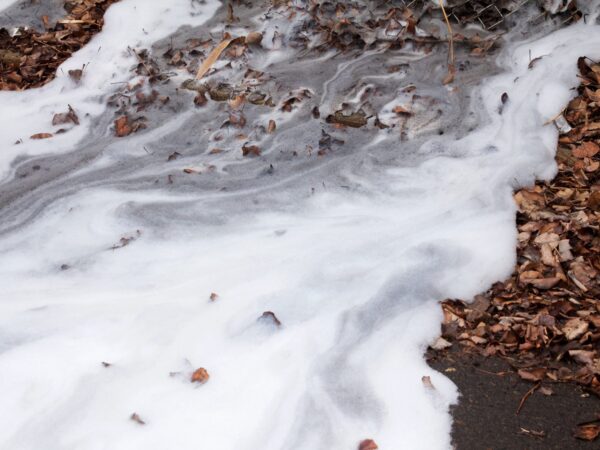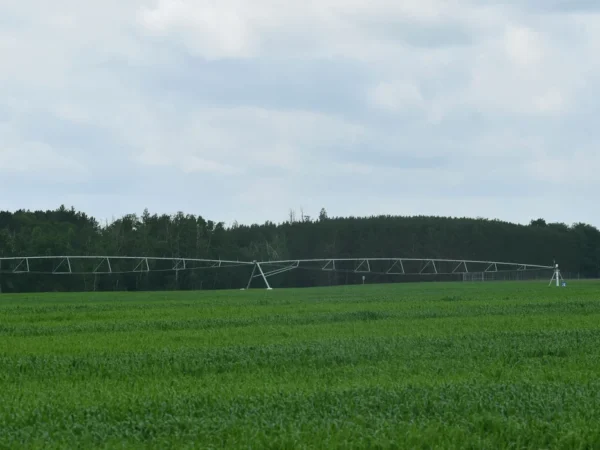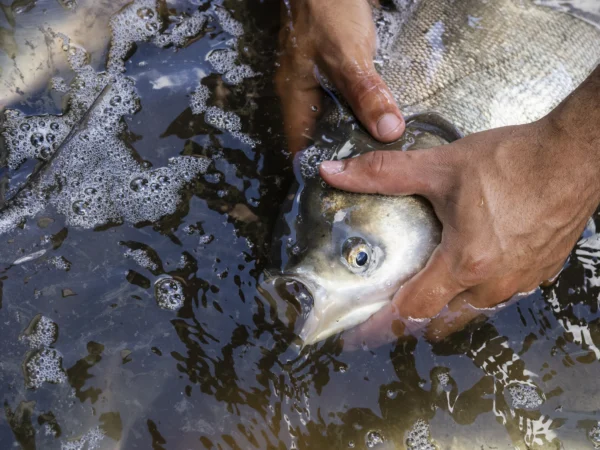
PFAS, short for per- and polyfluoroalkyl substances, are a group of widespread man-made chemicals that don’t break down in the environment or the human body and have been flagged as a major contaminant in sources of water across the country.
Keep up with PFAS-related developments in the Great Lakes area.
Click on the headline to read the full story:
Illinois:
- New tests trigger alert on Galesburg water; exceeds guidelines for PFAS which could be harmful – The Register-Mail
The Illinois Environmental Protection Agency tested the water supply in November and December as part of a statewide study.
On Jan. 27, the city was notified the two samples exceeded the draft guidance level for PFOA, one subset of the compounds known as PFAS, or perfluoroalkyl and polyfluoroalkyl substances.
Michigan:
- ‘Water is Life’: Record-Eagle testing project uncovers PFAS in Indigenous household wells – Traverse City Record-Eagle
The nonprofit Institute for Journalism and Natural Resources awarded a 2020 Environmental Justice Reporting Award and grant funds for a proposed Traverse City Record-Eagle project: test drinking water from private wells in Indigenous households to screen for PFAS substances, considered emerging contaminants by state and federal environmental regulators.
Minnesota:
- Analysts point to PFAS liability as a ding on 3M stock – Star Tribune
3M investors received some welcome news this week with the company’s strong earnings report, but the specter of “forever chemicals” litigation continues to haunt its stock.
And if the chemicals known as PFAS are deemed hazardous by the federal government — a greater possibility under new President Joe Biden and a Democratic Congress — 3M’s legal woes could grow.
New York:
- PFAS Air Emissions Regulations: NY Joins The Fray – The National Law Review
On January 13, 2021, the state of New York, through the New York State Department of Environmental Conservation, became only the second state in the United States to regulate PFAS in air emissions. New York proposed a regulation on air emissions for perfluorooctanoic acid – one type of PFAS – that would set an allowable concentration limit for PFOA that will have significant impact on industrial compliance practices.
Wisconsin:
- DNR orders new plan to stop spread of PFAS at Madison airport after experimental treatment fails – Wisconsin State Journal
The Department of Natural Resources says an experimental technology has failed to keep so-called “forever chemicals” from the Madison airport out of Madison’s lakes and streams, but county officials say they need more time to test it.
In May, after tests showed stormwater from the airport contained high levels of hazardous PFAS compounds, Dane County announced plans to test a system of booms and “bioavailable absorbent media” — also known as BAM — to treat water draining into Starkweather Creek.
In letters sent Thursday to city and county officials, the DNR said the treatment “has not proven to be successful in reducing PFAS concentrations” in water from the outfall.
- Evers Administration Seeks Outside Firm To Prosecute PFAS Polluters – Wisconsin Public Radio
Gov. Tony Evers announced Friday his administration is seeking an outside law firm to help the state prosecute companies responsible for PFAS contamination in Wisconsin. The move is part of an effort to hold corporate polluters responsible under the state’s PFAS Action Plan, which was released in December.
- PFAS found in all Madison Lakes; DNR testing fish before issuing consumption warning – Wisconsin State Journal
Hazardous “forever chemicals” linked to cancer have been found in the Yahara River and all five of Madison’s lakes, but state officials have not warned against eating the fish until they confirm they are contaminated.
Because the lakes are not sources of drinking water, the primary concern is how those chemicals, known as PFAS, are accumulating in fish, said Adrian Stocks, water quality program director for the Department of Natural Resources.
United States:
On Friday, the task force sent a letter to President Joe Biden in which 132 members of Congress from both parties urged immediate steps to tackle the contamination problem across the nation, citing advocacy group data suggesting more than 200 million Americans are likely drinking tap water that contains at least trace levels of the chemicals.
- Firefighters Battle an Unseen Hazard: Their Gear Could Be Toxic – The New York Times
This week, in a first, firefighters are demanding independent testing for cancer-linked chemicals known as PFAS in their gear and that their union drop sponsorships from chemical and equipment makers.
- PFAS Focus by State Lawmakers Moves Beyond Drinking Water Limits – Bloomberg Law
Legislators in 27 states plan to introduce legislation during their coming sessions to restrict so-called forever chemicals that can persist in air, water and soil, according to a report published Wednesday.
Safer States, a network of environmental health groups tracking state chemical policies, will issue its annual report on the legislative agendas for 2021. Bills requiring state agencies to regulate per- and polyfluoroalkyl substances, or PFAS, are the focus of most bills expected to be introduced, the report said.
Catch up with PFAS news on Great Lakes Now:
Wisconsin releases action plan to reduce PFAS chemical use
Indiana universities receive grants to study PFAS impact on water quality
PFAS News Roundup: PFAS exposure may affect COVID vaccine, NY bans PFAS in food packaging
PFAS Progress: Michigan continues legislative push for more action against PFAS
API key not valid. Please pass a valid API key.Featured image: In this June 6, 2018, file photo, PFAS foam washes up on the shoreline of Van Etten Lake in Oscoda Township, Mich., near Wurtsmith Air Force Base. (Jake May/The Flint Journal via AP, File)




